All fields are required
Posted in Listeria,Our Blog,Outbreaks & Recalls on May 30, 2023
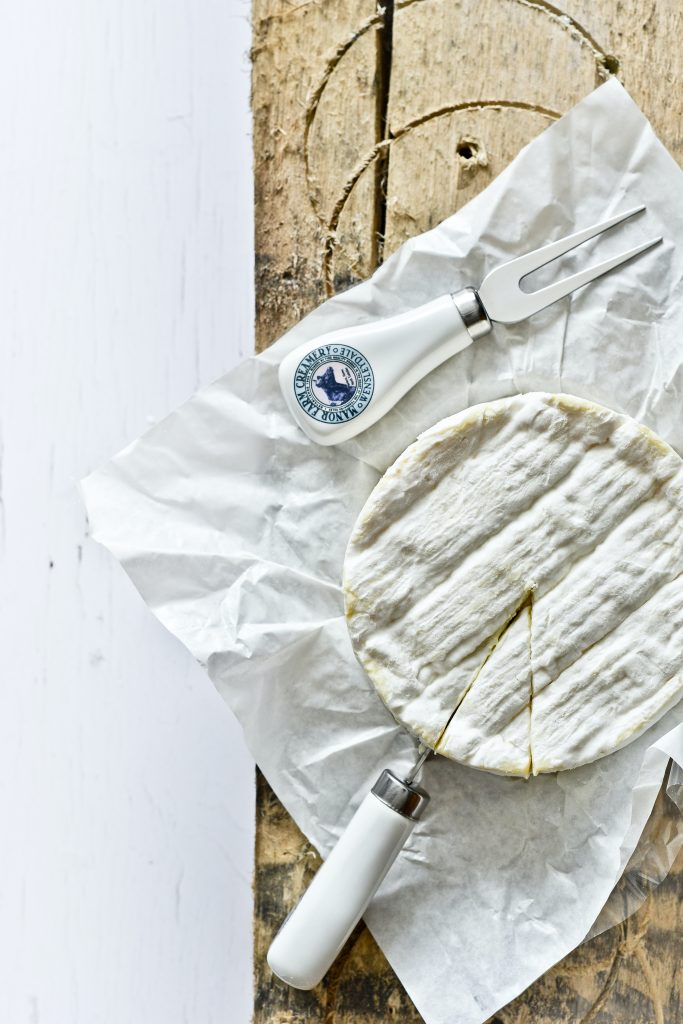
An outbreak of Listeria illnesses has been linked to a pasteurized cheese product distributed in Massachusetts and New York. Here is everything we know about the Cricket Creek Farm Cheese Listeria Outbreak:
One hospitalization due to Listeria monocytogenes has been reported to date. Following this customer notification of illness, products purchased by this individual were tested by Biotrax Testing Laboratory and the current batch of Sophelise manufactured by Cricket Creek Farm was determined to be positive for Listeria monocytogenes. The three batches of Tobasi are being recalled due to their proximity during storage to the exposed product.
Cricket Creek Farm of Williamstown, MA is recalling 165 units of Sophelise cheese and 149 pounds of Tobasi cheese because it has the potential to be contaminated with Listeria monocytogenes, an organism which can cause serious and sometimes fatal infections in young children, frail or elderly people, and others with weakened immune systems. Although healthy individuals may suffer only short-term symptoms such as high fever, severe headache, stiffness, nausea, abdominal pain and diarrhea, Listeria infection can cause miscarriages and stillbirths among pregnant women.
Sophelise and Tobasi were distributed in Massachusetts and New York through Wild Oats, Williamstown, MA; Provisions Williamstown, Williamstown, MA; McEnroe Organic Farm Market, Millerton, NY; New Lebanon Farmers Market; New Lebanon, NY, at restaurants, and farmers markets.
Sophelise product code: 087055 is a washed, pasteurized milk cheese with a soft rind and pinkish hue; the circular cheese measures 4 inches in diameter and roughly 1 inch tall. It is sold in semi-transparent packaging with a round blue label. Sophelise was distributed between March 29, 2023 and May 26, 2023.
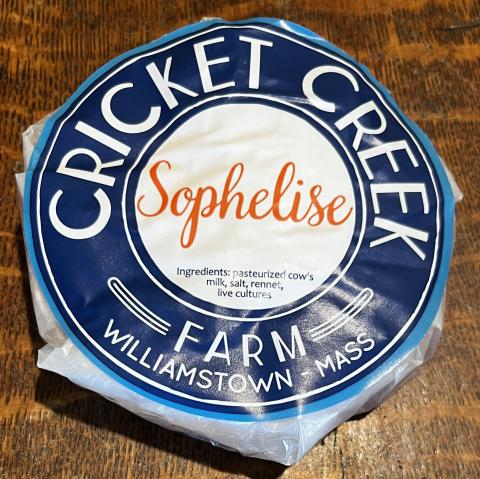
Tobasi with a product label of 315, 341, 048 is a washed raw-milk cheese with an orange rind and creamy interior. When sold retail by Cricket Creek Farm, it is wrapped in clear packaging with a gray and orange label. When sold at retail stores, it is sold in small rectangular cuts. When sold wholesale, the cheese is a square format roughly 8”x8” and 1.25 inches tall. These batches of Tobasi were distributed between March 26, 2023, to May 26, 2023.
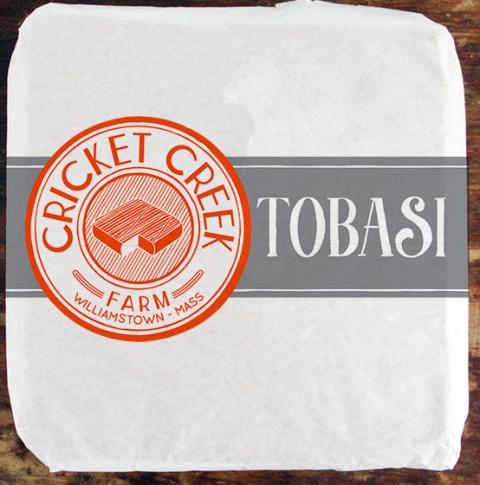
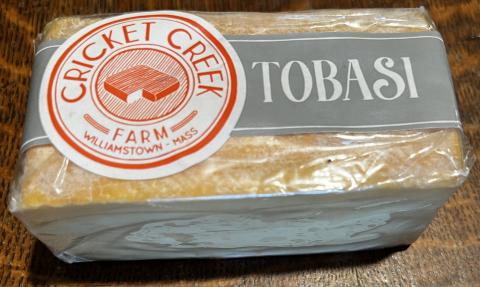
According to its website, “Cricket Creek Farm is a small, grass-based cow dairy nestled in the Berkshire hills of Williamstown, MA. We produce raw milk, grass-fed beef, rose veal, and whey-fed pork, in addition to seven styles of artisanal farmstead cheeses. We generally milk between 35-40 cows at a time, and care for about 80 animals in total. This is an open farm – we welcome visitors and encourage questions.”
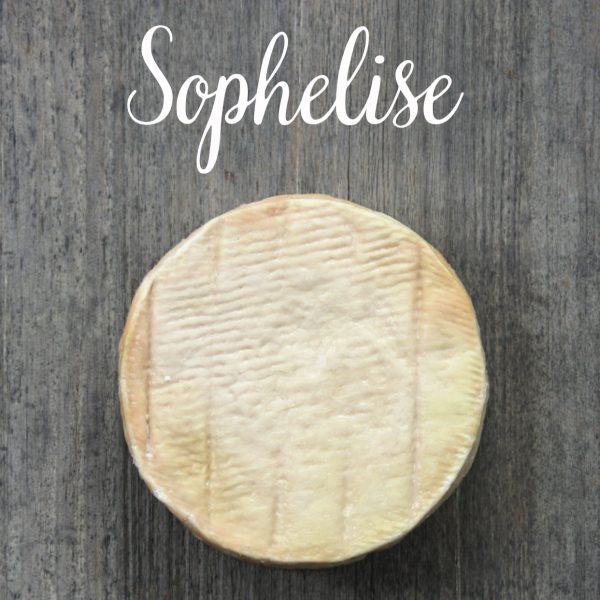
“Sophelise is our newest cheese – a soft cheese in the washed rind family, with an identity all its own. A pungent rind for fans of Reblochon, and a texture for lovers of Brie. A Cricket Creek Farm original, that even the experts can’t define. Made from pasteurized milk.”
Despite the recall announcement, the company had not commented about this on their website or their Facebook at this time.
About Listeria
Listeriosis, the infection caused by ingesting the foodborne bacteria Listeria monocytogenes, commonly referred to as Listeria. This infection primarily affects higher risk populations such as pregnant women, newborns, older adults, and those with a weakened immune system. While it is rare for those in other groups to become sick with Listeria infection, it does happen. Though they typically recover without medical intervention.
Listeria Symptoms
Symptoms associated with Listeria infection vary depending on the person infected and the part of the body affected. In general, symptoms involve typical fever and diarrheal symptoms similar to other foodborne germs, though this type of infection is rarely diagnosed. For those with invasive listeriosis, where the bacteria spreads beyond the gut is more complicated. For example, pregnant women, non-pregnant women, and those with a weakened immune system often have different sets of symptoms.
Pregnant Women
Listeria infection in women often includes little more than fever and other flu-like symptoms such as muscle aches and fatigue. The larger danger is that Listeria can lead to miscarriage, still birth, premature delivery, or life-threatening infection of the newborn baby.
Non-Pregnant Women
More severe Listeria infections in non-pregnant women often includes headache, stiff neck, confusion, loss of balance, and convulsions as well as fever and muscle aches.
Adults Over 65 and/or Weakened Immune Systems
Adults over the age of 65 and those with weakened immune systems may develop severe infections where the Listeria monocytogenes bacteria moves outside of the gut and into other parts of the body.
When it reaches the blood stream it can cause sepsis. In the brain it can cause meningitis or encephalitis. Listeria infections can also spread to other parts of the body including bones, joints, and areas of the chest and abdomen.
Listeriosis Diagnosis and Treatment
Listeriosis is generally diagnosed from a bacterial culture. The health care provider requests a bacterial culture panel based on symptoms the patient is presenting. Samples such as body tissue or body fluid such as blood, spinal fluid, or placenta are grown. If the bacterium Listeria monocytogenes grows on the culture plate, the sample is sent to the Center for Disease Control and Prevention to be sequenced and added to the foodborne infection database.
Treatment of listeriosis often involves antibiotic treatment. Modes of treatment vary based on the severity of infection. Penicillin, ampicillin, and amoxicillin are often used in the treatment of listeriosis.
What to Do If You Are Affected
It can be a frustrating experience to be affected by food poisoning in a food product-based outbreak. There are a few steps you can take to help navigate yourself through the process.
Seek medical attention and indicate that your illness may be associated with an ongoing outbreak investigation. Your healthcare provider will likely order a test that will indicate if you are infected with the outbreak organism. This sample will be forwarded to the Center for Disease Control and Prevention if it turns out to be the organism of interest. Your healthcare provider will provide you with appropriate treatment options to get you the best options for getting better.
Make a list of the foods and places you have eaten over the past few weeks. Try to be as specific as possible while the details are fresh in your mind. If you have any leftover food items, save them if possible and/or the wrappers so that lot information can be recorded in the event you are interviewed by an investigator. This will assist in traceback investigation efforts. Your actions could mean faster identification of a source and fewer people falling ill from the same product.
Our mission is to help families who have been harmed by contaminated food or water. When corporations cause Listeria food poisoning outbreaks, we use the law to hold them accountable. The Lange Law Firm PLLC is one of the only law firms in the nation focused on representing families in food poisoning lawsuits. This is what we do.
If you were diagnosed with Listeria after eating cheese in this Cricket Creek Farm Cheese Listeria Outbreak and want to make a legal claim for compensation, we can help. Our Listeria lawyer can help you pursue compensation for your Listeria food poisoning. Call us for a free no obligation legal consultation at (833) 330-3663 or send us an e-mail here.